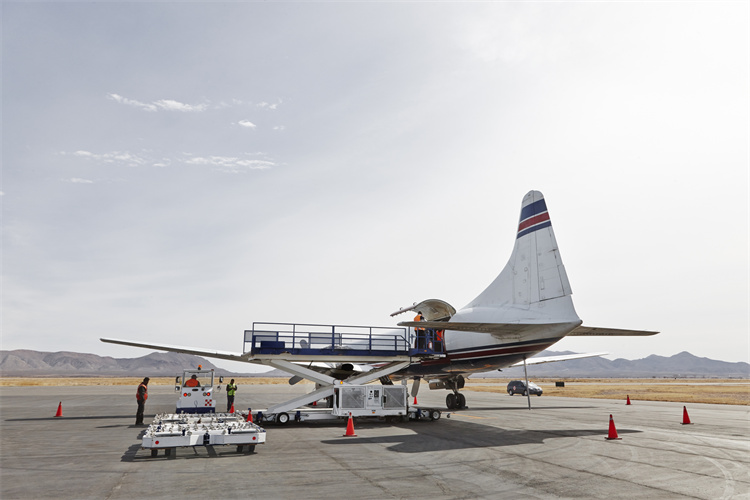Key Supply Chain Developments in Mexico for 2025

Supply chain developments in Mexico hold immense importance for the global market. Mexico plays a pivotal role in global supply chains, particularly in the automotive and electronics sectors. With over 600 Tier 1 supplier plants, Mexico produces approximately 4 million vehicles annually. This robust manufacturing base positions Mexico as a key player in global supply chain management 2025 Mexico. Looking ahead to 2025, understanding these developments becomes crucial for businesses aiming to leverage Mexico's strategic advantages. The future promises enhanced opportunities for growth and efficiency, making it essential to stay informed and prepared.
Current Trends in Mexico's Supply Chain

Technological Advancements
Automation and Robotics
Mexico's supply chain is experiencing a technological revolution. Automation and robotics play a pivotal role in this transformation. Companies are investing heavily in these technologies to enhance efficiency and reduce costs. For instance, Ford's investment of $420 million in the Cuautitlán plant for manufacturing the new Mustang Mach E electric pickup highlights the shift towards automation. This move not only boosts production capabilities but also positions Mexico as a leader in automotive innovation.
Digitalization and IoT
Digitalization and the Internet of Things (IoT) are reshaping supply chain operations in Mexico. Businesses are adopting digital tools to streamline processes and improve visibility across the supply chain. IoT devices provide real-time data, enabling companies to make informed decisions quickly. This technological integration enhances operational efficiency and ensures that Mexico remains competitive in the global market.
Trade Agreements and Policies
USMCA Impact
The United States-Mexico-Canada Agreement (USMCA) significantly impacts Mexico's supply chain landscape. This agreement strengthens trade relations and provides a stable framework for businesses operating in the region. By reducing trade barriers, the USMCA encourages investment and fosters economic growth. Companies benefit from easier access to North American markets, making Mexico an attractive destination for manufacturing and supply chain operations.
Tariff Changes
Recent tariff changes have influenced Mexico's trade dynamics. Adjustments in tariffs affect the cost of importing and exporting goods, impacting supply chain strategies. Businesses must adapt to these changes to maintain competitiveness. By staying informed about tariff developments, companies can optimize their supply chain operations and capitalize on new opportunities.
Infrastructure Developments
Port Expansions
Infrastructure improvements are crucial for enhancing Mexico's supply chain capabilities. Port expansions play a vital role in facilitating trade and reducing logistics costs. The opening of new sea routes and increased capacity are expected to lower freight prices, benefiting businesses operating in Mexico. These developments ensure that Mexico remains a key player in global supply chains.
Road and Rail Improvements
Investments in road and rail infrastructure further strengthen Mexico's supply chain network. Enhanced transportation links improve connectivity and reduce transit times. This infrastructure development supports the efficient movement of goods, making Mexico an ideal location for nearshoring. As a result, businesses can enjoy faster lead times and greater supply chain visibility, driving the trend towards nearshoring to Mexico.
Future Projections for 2025
Economic Growth and Its Impact
GDP Growth Forecasts
Mexico's economy is set to grow steadily by 2025. Analysts predict a robust GDP increase, driven by strategic investments and favorable trade conditions. This growth positions Mexico as a vital player in global supply chains. Businesses can capitalize on this momentum by aligning their operations with Mexico's expanding market.
Investment in Supply Chain
Investment in Mexico's supply chain infrastructure will surge. Companies recognize the benefits of nearshoring and are pouring resources into logistics and manufacturing capabilities. This trend enhances efficiency and reduces costs, making Mexico an attractive hub for global operations.
Environmental and Sustainability Initiatives
Green Logistics
Sustainability takes center stage in Mexico's supply chain strategy. Green logistics practices are gaining traction, with companies adopting eco-friendly transportation and packaging solutions. These initiatives not only reduce carbon footprints but also appeal to environmentally conscious consumers.
Renewable Energy Integration
Renewable energy integration is transforming Mexico's industrial landscape. By 2025, businesses will increasingly rely on solar and wind power to fuel operations. This shift supports sustainability goals and offers cost savings, reinforcing Mexico's commitment to a greener future.
Labor Market Changes
Workforce Skill Development
The labor market in Mexico is evolving to meet new demands. Workforce skill development programs are essential for preparing employees for advanced manufacturing roles. Companies invest in training to ensure a skilled labor pool, enhancing productivity and innovation.
Employment Trends
Employment trends in Mexico reflect a shift towards high-tech industries. The rise of electric vehicles, with over 350 models expected by 2025, creates new job opportunities. This growth in the automotive sector underscores Mexico's role as a leader in technological advancement.
By embracing these developments, businesses can thrive in Mexico's dynamic supply chain environment. The future promises growth, sustainability, and innovation, making Mexico a strategic choice for global operations.
Comparative Analysis with Other Regions
Comparison with North America
Supply Chain Efficiency
Mexico's supply chain efficiency stands out in the global market. The country has developed a robust manufacturing base, particularly in the automotive and electronics sectors. With over 600 Tier 1 supplier plants, Mexico produces approximately 4 million vehicles annually. This efficiency positions Mexico as a leader in supply chain management, offering faster lead times and reduced logistics costs compared to its North American counterparts.
Technological integration in Mexico's supply chain is advancing rapidly. Companies are embracing automation, robotics, and digitalization to enhance operations. This technological leap ensures that Mexico remains competitive with North America, providing businesses with cutting-edge solutions to streamline processes and improve productivity.
Technological integration in Mexico's supply chain is advancing rapidly. Companies are embracing automation, robotics, and digitalization to enhance operations. This technological leap ensures that Mexico remains competitive with North America, providing businesses with cutting-edge solutions to streamline processes and improve productivity.
Comparison with Asia
Cost Competitiveness
Mexico offers significant cost advantages over many Asian countries. The strategic location near the United States reduces shipping costs and transit times. Additionally, Mexico's labor costs remain competitive, making it an attractive option for manufacturers seeking to optimize expenses without compromising quality.
Market Access
Mexico's proximity to the U.S. provides unparalleled market access. The country's trade agreements, such as the USMCA, facilitate seamless entry into North American markets. This access, combined with Mexico's growing infrastructure and skilled workforce, positions it as a strategic hub for companies looking to expand their global reach.
By understanding these comparative strengths, businesses can make informed decisions about leveraging Mexico's supply chain capabilities. The country's unique advantages offer compelling reasons to consider Mexico as a key player in global operations.
Global Supply Chain Management 2025 Mexico
Strategic Positioning
Nearshoring Benefits
Nearshoring to Mexico offers significant advantages for businesses seeking to optimize their supply chain operations. Companies benefit from reduced shipping costs and shorter transit times due to Mexico's proximity to the United States. This strategic location allows manufacturers to respond swiftly to market demands, enhancing their competitiveness in the global arena. Additionally, nearshoring mitigates risks associated with overseas production, such as shipping delays and geopolitical tensions. By relocating manufacturing closer to the consumer base, businesses can achieve faster lead times and improved supply chain visibility.
Competitive Advantages
Mexico's competitive advantages in global supply chain management 2025 Mexico are multifaceted. The country boasts a skilled labor force, with a strong emphasis on workforce skill development programs. These initiatives ensure that employees possess the necessary expertise to excel in advanced manufacturing roles. Furthermore, Mexico's robust infrastructure, including enhanced rail and port facilities, supports efficient logistics operations. The country's commitment to sustainability, through green logistics and renewable energy integration, aligns with global trends and appeals to environmentally conscious consumers. These factors position Mexico as a strategic hub for companies aiming to expand their global reach.
Challenges and Opportunities
Risk Mitigation
In the dynamic landscape of global supply chain management 2025 Mexico, risk mitigation remains a priority for businesses. Companies must navigate challenges such as fluctuating tariffs, regulatory changes, and potential supply chain disruptions. By leveraging Mexico's stable trade agreements, like the USMCA, businesses can reduce uncertainties and secure a reliable framework for operations. Additionally, investing in digitalization and IoT technologies enhances supply chain resilience by providing real-time data and insights. These tools enable companies to anticipate and address potential risks proactively, ensuring seamless operations.
Market Expansion
The Mexican market presents abundant opportunities for growth and expansion. With the entry of approximately 495 new companies between 2024 and 2025, the outlook for supply chain growth is promising. Mexico's strong manufacturing base, particularly in the automotive and electronics sectors, attracts foreign firms seeking to capitalize on its strategic advantages. The rise of electric vehicles, supported by investments in efficient logistics strategies, underscores Mexico's potential as a leader in technological advancement. By tapping into this expanding market, businesses can enhance their global supply chain management 2025 Mexico and achieve long-term success.
Mexico's supply chain developments for 2025 promise significant advancements. Key trends include technological integration, infrastructure improvements, and sustainability initiatives. These changes offer businesses and investors opportunities to enhance efficiency and reduce costs.
Implications for Businesses:
Companies must adapt to smart solutions and efficient practices, especially in the automotive sector.
Economic incentives from the U.S. may boost electric car manufacturing.
Final Thoughts:
Mexico's strategic positioning and robust infrastructure make it a compelling choice for global operations. By embracing these developments, businesses can thrive in a dynamic market.
See Also
5 Key Trends Driving Future Supply Chain Efficiency
Unlocking Your Automotive Supply Chain's Full Potential
Addressing Globalized World Challenges in Supply Chain Expansion
